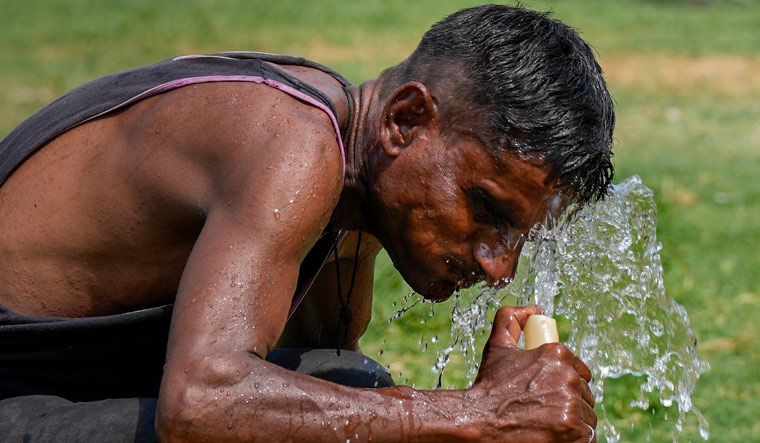Severe heatwave conditions continue to prevail in several parts of north and central India, including Punjab, Haryana, Chandigarh, and Delhi. The mercury crossed 50 degrees Celsius in Rajasthan's Churu and Haryana's Sirsa on Tuesday. India Meteorological Department (IMD) issued a 'red' alert for Delhi, Rajasthan, Haryana, Chandigarh, Punjab, and Madhya Pradesh on Wednesday.
“Heatwave to severe heatwave conditions are very likely in many or most parts of Rajasthan; in some or many parts of Punjab, Haryana, Chandigarh, Delhi; in isolated parts of West Uttar Pradesh, West Madhya Pradesh during May 27th-29th and gradual reduction thereafter,” an IMD bulletin said.
At least three weather stations in the national capital recorded maximum temperatures of 49 degrees Celsius or more. Mungeshpur and Narela in Delhi clocked 49.9 degrees followed by Najafgarh at 49.8 degrees Celsius. This was the highest maximum temperature recorded in Delhi this season.
"Yesterday (Tuesday), maximum temperatures were in the range of 46-50 °C in many parts of Northwest India. 42-46°C in many parts of West, Central & East India. These were above normal by 3-6°C over many parts of Northwest India and in some parts of Central & West India," a statement from IMD read.
IMD sees some respite from the sweltering weather from Thursday. “Heatwave to severe heatwave conditions likely to reduce gradually or Northwest & Central India from 30th May,” the IMD said.
IMD director general Mrutyunjay Mohapatra has attributed the heatwave conditions to the absence of western disturbances during the latter half of May, reported PTI.
Western disturbances are extra-tropical weather systems formed over the Mediterranean Sea that move from the west to the east.
The intense heat has already driven power demand to 239.96 gigawatts, the highest so far this season, as air conditioners and coolers in offices and homes have been running at full capacity.
The IMD has also advised people to avoid exposure to heat and dehydration as rising temperatures can lead to heat-related illness and heat stroke and pose significant health concerns for vulnerable individuals such as infants, the elderly, and those with chronic diseases.


